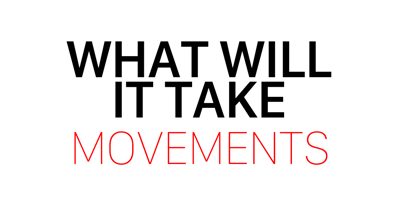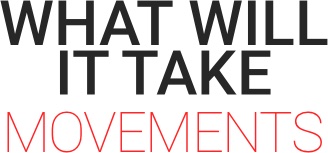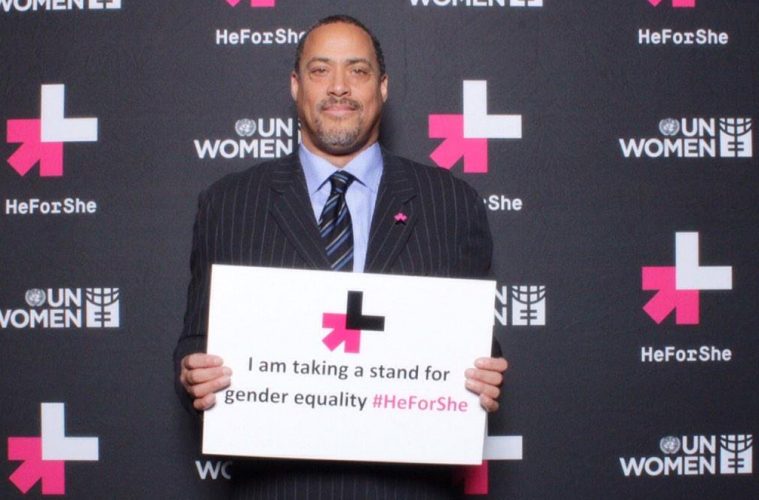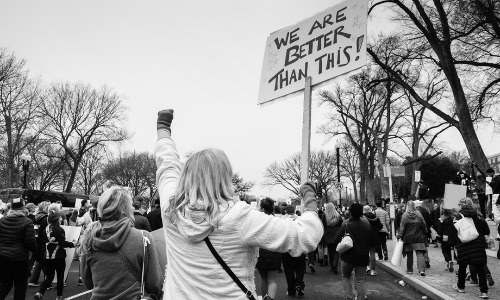This interview is an excerpt from What Will It Take to Make a Woman President: Conversations About Women, Leadership & Power by Marianne Schnall. All rights reserved.
For more from Don McPherson, check out his new book
You Throw Like a Girl: The Blind Spot of Masculinity
Marianne Schnall: Why do you think we have not yet had a woman president?
Don McPherson: Wow. It’s funny… you’re asking this question, and there are about five or six different ways in my head that I can think of answering it. We live in this incredibly sexist and misogynistic society—that’s an easy statement to make—but it’s more. I think when you really start to drill down into American culture, we’re the greatest hypocrites going. We say things like “equality,” and yet we laugh in the face of that at times. We still have unequal pay for equal work. We still have these glaring things in our culture that we have yet to address. We have not ratified certain agreements, even the rights of a child.
We are so hypocritical: we live these very Judeo-Christian values on the one hand, but on the other hand, the capitalism that drives our culture is so loaded with gender inequities and use of sexual behavior and sexual innuendo in this supposed Christian culture. It’s subtly powerful. Even if you look at our current political structure, there are so many whys. Why haven’t we had a Jewish president? The hypocrisy of our culture sometimes—we talk about being fair and just, but we are sexist and homophobic. So that’s sort of my first gut reaction.
“I, as a black man, at one point in this country, was livestock. And I got the right to vote before [women] did. That should tell you the severity of sexism in our democracy.”
MS: In connection to that, that’s why I always think it’s not just about electing a woman president, but the fact that we’ve elected Barack Obama twice, just in terms of changing the paradigms by having greater diversity up at the top is still a very positive sign.
DM: It is, but sometimes when I talk to people and they want to debate the severity of sexism in our culture, I remind them that I, as a black man, at one point in this country, was livestock. And I got the right to vote before [women] did. That should tell you the severity of sexism in our democracy. And so Barack Obama is part of the boy’s club. Even though he’s a black man—even though he’s a black man named Barack Hussein Obama—he made it to the presidency before [a woman did].
MS: When I interviewed Gloria Steinem, she gave me this quote, and I was just interested in your reaction: “We were raised by women and so we associate women with childhood. Men, especially, may feel regressed when they see a powerful woman. The last time they saw one they were eight. So one of the most helpful things we can do in the long term, is to make sure that kids have loving, nurturing, male figures, as well as female figures, and authoritative and expert female figures, as well as male figures.” I’m just curious if you think, in terms of talking about some of these gender roles, if that is part of the issue? That men have issues with seeing powerful women?
DM: Yes. To your point about what happens with our boys, I always say that boys who are raised by women, as you mentioned, there comes a point when they are told explicitly that what your mother does is beneath you. And what she does is “less than” what your father does, or has less value, and you’re not to do those things. And we laugh about it. We joke about this. Boys don’t do laundry, they don’t cook. You hear a guy say he cooks, you’re like, “What? You cook?” “Yes, I prepare food for the family to eat.” And yet that’s beneath boys, and it’s all the behaviors and all the things they see their mothers doing. My daughters put on my shoes and clog around the house, but if I had a son, would he put on his mother’s shoes and clog around the house? Our homophobia tells that boy, “No, that’s wrong.” And we learn this as boys. We learn this at a very, very early age.
For a lot of boys, it’s troubling. It’s like, What do you mean? This is the woman who bathed me, who fed me, who does all these things and I’m being told that who she is, is less than. And that is a very real expression; I hear it almost daily. I have two children, so I hear it in their peers’ families on a regular basis. So boys are learning that women are less than. And as they grow, that just gets reinforced in so many ways: Mom is a cook, but Dad is a chef. Your elementary school teacher is a woman. Your middle school teacher is a woman. Your high school teacher is a man. Your college professor is a man. So it’s all these different things—as we get older, the more serious roles are men.
MS: So how can we fix this or change this?
DM: I actually think that as dramatic as that just sounded, it is one of the areas where we are far in advance of what we think. What I mean by that is, as I said, I have two daughters. And my two daughters know they can be just about anything. And they’ve asked that question about a woman president. And because of the media the way that it is now, I do think that this is a very interesting time where a lot of challenges to convention are happening at a very, very rapid pace because of technology and media… so we’re seeing this collective consciousness that is being supported by media.
And generationally, because of that being more connected, more aware, more conscious, I think that those things are moving us toward a woman president, toward a lot of things. I think there are a lot of things that are happening rapidly, that are challenging the convention of all white men.
“I am a man in recovery, because I am constantly trying to unlearn behaviors and attitudes and feelings that were nurtured into me my entire life. Even as a black person, nothing was more damaging to my life than masculinity.”
MS: One of the things that I’ve heard you say is that we sometimes mistakenly think of gender stereotypes as fixed attributes, when the truth is a lot of that has been cultural conditioning. I have heard you talk about, as a man, trying to embrace your wholeness. I like that you call those qualities of being loving and nurturing and peaceful part of your humanness, rather than feminine. Those are qualities that exist in men and boys, as well, but they’ve been conditioned to turn those off by society. The fact that women aren’t represented in positions of power and authority may also have to do with these “feminine” and “human” traits associated with women that have been suppressed in the world.
DM: That’s patriarchy. Because what it’s doing is taking those qualities that we see as weak or that we associate with weakness. I’m just thinking of myself in some ways, but I think of men in general, when we feel, we feel weak and we feel vulnerable. And it is a horrible feeling, but what’s amazing about that horrible feeling is that’s where we grow. And men are typically violent toward that growth and toward that feeling.
I used to always say, “I am a man in recovery,” because I am constantly trying to unlearn behaviors and attitudes and feelings that were nurtured into me my entire life. Not only were they nurtured into you, but you were told that they mattered and that they made you important, they made you strong. And I said that even as a black person, nothing was more damaging to my life than masculinity. And I go back to Obama: his race didn’t hold him back. He’s president of the United States! And yet it is my gender as a man that has made me less functional in relationships. It has made me less functional in my own health. It has given me a very narrow lens on the world. Again, because I’m a man in a patriarchal society, I never had to address that.
“When do we get to the conversation not about masculinity, but about masculinities—that we accept ALL forms of masculinity, that we allow all men their masculinity as they define it?”
MS: It seems like there needs to be more of a forum for men to talk about these things. I think one of the few positive things that have been coming out of, for example, the Steubenville rape case, is that it does seem like men speaking out about violence against women has been a specific way for men to begin to have these conversations. Because, as you’ve often said, violence against women isn’t a “women’s issue.” Do you think getting involved in the effort to stop violence against women has provided a way for men to begin to have this conversation?
DM: I’ve said this for a long time, and I believe it’s from my first introduction to this work, that what is necessary for a lot of reasons—and primarily just from the perspective of working to end men’s violence against women, but for a whole host of other reasons—is that men need to have this conversation without women, and not driven by women. It needs to be a conversation led by men about men, and we have to move away from even the discussion about this is about preventing violence against women. In other words, we agree that, okay, rape is wrong. Okay all these other things are bad—pornography is bad, strip clubs are bad—but when do we get to the stuff about who we are, as men? When do we get to the conversation not about masculinity, but about masculinities, that we accept our gay brothers as our brothers; that we accept all forms of masculinity; that we allow all men their masculinity as they define it? And we’re not even close to that.
It’s like I always say, when do men have these conversations? When do men have the conversation around violence against women? It’s after there’s been violence against women. So there are a couple of problems with that. One is that all men in that subsequent conversation represent the perpetrator, so men are defensive. And then our conversation is around addressing that issue, so even in the room, knowing that we’re here because of [the] Steubenville [rape case], and so we have to work on preventing Steubenvilles. We have to address narrow masculinity and violent masculinity, but we don’t necessarily address vulnerable masculinity. We don’t necessarily address loving masculinity. We don’t address the wholeness of masculinity. I think that is ultimately the problem that we have right now in the conversation.
MS: Are you optimistic? What is the consciousness of the world that we’re aiming for, in having this conversation, in terms of having men and women reach their human potential? What is the grand vision that you think we are looking to achieve?
DM: The grand vision—without being too over the top, because you have to get there, you don’t stop short—it’s utopia. It’s a loving society. And I say that not as a religious person, but isn’t that the question? Why are we here, so to speak? What’s it all about? I think that’s the great question. And that’s why in all the different social issues, that whole conversation on gender to me was like the final frontier, because it answered so many of the other ills that we inflict on one another. So I do believe that when you start looking at a different form of masculinity, that no longer defines control by oppression or suppression, then you are looking at a world that is going to be less violent. And a world that is less violent is more of a world that is peaceful and loving… and isn’t that utopia?
About Don McPherson
For more than twenty-seven years, Don McPherson has used the power and appeal of sport to address complex social justice issues. He has created innovative programs, supported community service providers, and has provided educational seminars and lectures throughout North America. Don has twice testified before the United States Congress and has worked closely with the U.S. Departments of Education and Defense on issues of sexual violence in education and the military, respectively. McPherson has served as a board member, consultant, and advisor for several national organizations including the Ms. Foundation for Women and the National Football Foundation and the U.S. National Committee for UN Women. He currently serves on the board of the Arc of Onondaga Foundation. McPherson recently joined the Advisory Board of the Center for the Study of Men and Masculinities at Stony Brook University.
As an athlete, McPherson was a unanimous All-America quarterback at Syracuse University. His professional football career included playing for the NFL’s Philadelphia Eagles and Houston Oilers, then going up north to join the Canadian Football League’s Hamilton Tiger-Cats and Ottawa Rough-Riders. He was runner-up for the Heisman Trophy. In 2009, McPherson was enshrined into the College Football Hall of Fame. McPherson has worked as a college football analyst for ESPN, BET and NBC and spent six seasons as the lead studio analyst for Sportsnet New York’s coverage of Big East and American Athletic Conference football. He is the author of You Throw Like a Girl: The Blind Spot of Masculinity



